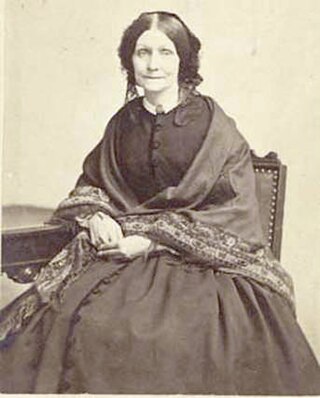Related Research Articles

Gothic fiction, sometimes called Gothic horror, is a loose literary aesthetic of fear and haunting. The name refers to Gothic architecture of the European Middle Ages, which was characteristic of the settings of early Gothic novels.

The Western canon is the body of high-culture literature, music, philosophy, and works of art that are highly valued in the West; works that have achieved the status of classics. However, not all these works originate in the Western world, and such works are also valued throughout the globe. It is "a certain Western intellectual tradition that goes from, say, Socrates to Wittgenstein in philosophy, and from Homer to James Joyce in literature".
A pen name is a pseudonym adopted by an author and printed on the title page or by-line of their works in place of their real name.

The English novel is an important part of English literature. This article mainly concerns novels, written in English, by novelists who were born or have spent a significant part of their lives in England, Scotland, Wales, or Northern Ireland. However, given the nature of the subject, this guideline has been applied with common sense, and reference is made to novels in other languages or novelists who are not primarily British, where appropriate.

Jane Francesca Agnes, Lady Wilde was an Irish poet under the pen name Speranza and supporter of the nationalist movement. Lady Wilde had a special interest in Irish folktales, which she helped to gather and was the mother of Oscar Wilde and Willie Wilde.
British literature is literature from the United Kingdom of Great Britain and Northern Ireland, the Isle of Man, and the Channel Islands. This article covers British literature in the English language. Anglo-Saxon literature is included, and there is some discussion of Latin and Anglo-Norman literature, where literature in these languages relate to the early development of the English language and literature. There is also some brief discussion of major figures who wrote in Scots, but the main discussion is in the various Scottish literature articles.
Arabic literature is the writing, both as prose and poetry, produced by writers in the Arabic language. The Arabic word used for literature is Adab, which is derived from a meaning of etiquette, and which implies politeness, culture and enrichment.

Lucille Clifton was an American poet, writer, and educator from Buffalo, New York. From 1979 to 1985 she was Poet Laureate of Maryland. Clifton was a finalist twice for the Pulitzer Prize for poetry.
Sudanese literature consists of both oral as well as written works of fiction and nonfiction that were created during the cultural history of today's Republic of the Sudan. This includes the territory of what was once Anglo-Egyptian Sudan, the independent country's history since 1956 as well as its changing geographical scope in the 21st century.
Women have made significant contributions to literature since the earliest written texts. Women have been at the forefront of textual communication since early civilizations.

Lesbian literature is a subgenre of literature addressing lesbian themes. It includes poetry, plays, fiction addressing lesbian characters, and non-fiction about lesbian-interest topics.
The academic discipline of women's writing is a discrete area of literary studies which is based on the notion that the experience of women, historically, has been shaped by their sex, and so women writers by definition are a group worthy of separate study: "Their texts emerge from and intervene in conditions usually very different from those which produced most writing by men." It is not a question of the subject matter or political stance of a particular author, but of her sex, i.e. her position as a woman within the literary world.

Kamala Das , popularly known by her one-time pen name Madhavikutty, was an Indian poet in English as well as an author in Malayalam from Kerala, India. Her popularity in Kerala is based chiefly on her short stories and autobiography, while her oeuvre in English, written under the name Kamala Das, is noted for the poems and explicit autobiography. She was also a widely read columnist and wrote on diverse topics including women's issues, child care, politics, etc. Her liberal treatment of female sexuality, marked her as an iconoclast in popular culture of her generation. On 31 May 2009, aged 75, she died at Jehangir Hospital in Pune.
The Rose Mary Crawshay Prize is a literary prize for female scholars, inaugurated in 1888 by the British Academy.

The Women's Prize for Fiction is one of the United Kingdom's most prestigious literary prizes. It is awarded annually to a female author of any nationality for the best original full-length novel written in English and published in the United Kingdom in the preceding year. A sister prize, the Women's Prize for Non-Fiction, was launched in 2023.
Hannah Griffitts (1727–1817) was an 18th-century American poet and Quaker who championed the resistance of American colonists to Britain during the run-up to the American Revolution.

Fidelia Fisk was an American Congregationalist missionary and teacher. She founded the Fiske Seminary boarding school in Urmia in West Azerbaijan Province, Qajar Iran.

Reverend Lucia Fidelia Woolley Gillette was among the first women ordained Universalist minister in the United States and the first woman ordained of any denomination in Canada.

Mary Scott's The Female Advocate; a poem occasioned by reading Mr. Duncombe's Feminead (1775) is both a celebration of women's literary achievements, as well as an impassioned piece of advocacy for women's right to literary self-expression.
References
- 1 2 3 The Feminist Companion to Literature in English. Women Writers from the Middle Ages to the Present , Virginia Blain, Patricia Clements and Isobel Grundy, eds (London, Batsford, 1990), p. 369.
- ↑ DNB text. Retrieved 13 April 2019.
- ↑ Text of the story. Retrieved 13 April 2019.
- ↑ Published in The Female Advocate: or an Attempt to Recover the Rights of Women from Male Usurpation (1799). See Catherine Packham: Eighteenth-Century Vitalism: Bodies, Culture, Politics (Basingstoke, UK: Palgrave Macmillan, 2012).